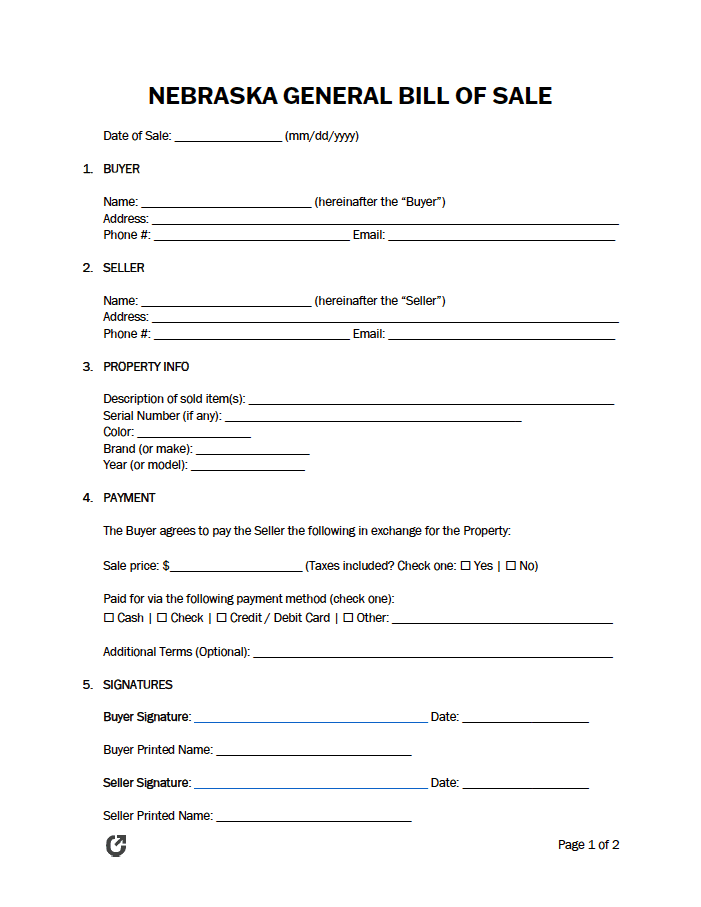Nebraska General Bill of Sale Form
A Nebraska general bill of sale form allows individuals to highlight the primary elements of an item’s arrangement. Unlike other legal documents, this form does not have specific requirements for the item or transfer. In most cases, it is optional and serves as ownership verification and payment confirmation. Both parties also store the document for personal purposes instead of submitting it to an official office. Nonetheless, many states suggest completing the bill of sale to prove two (2) individuals formed an agreement. This process prevents miscommunication and misunderstanding.
| Signing Requirements: The transferor(s) and transferee(s) must sign. |
What is a Nebraska General Bill of Sale?
A Nebraska general bill of sale illustrates the personal property that two (2) parties exchanged. The form lists the purchase price, sale date, and contact information of both individuals. It does not require the involvement of witnesses or third parties; instead, it serves as proof of the deal. Most comparable to a receipt, the document allows the buyer and seller to create official evidence of the transfer via signature. Without it, anyone can claim ownership, and neither person can prove the sale.
Do I Have to Use a Bill of Sale?
Residents must use a bill of sale when buying or selling a motor vehicle; however, other purchases do not require the form. Nonetheless, individuals should use the document in all transactions to legally prove the exchange of funds and change in possession. It records how the payment occurred and the amount that the buyer gave the seller. This step becomes essential if a title or additional documentation does not exist.
Is Notarization Mandatory?
Notarization is mandatory when signing a Nebraska motor vehicle bill of sale form. It is not required for other bill of sale documents. While not necessary, buyers and sellers should consider having their paperwork notarized as additional evidence of the exchange. Notarized forms often have greater legal power as officials accept them more readily. The seal (or stamp) of approval indicates that the sale happened lawfully, meaning neither person forged the signatures or form.
